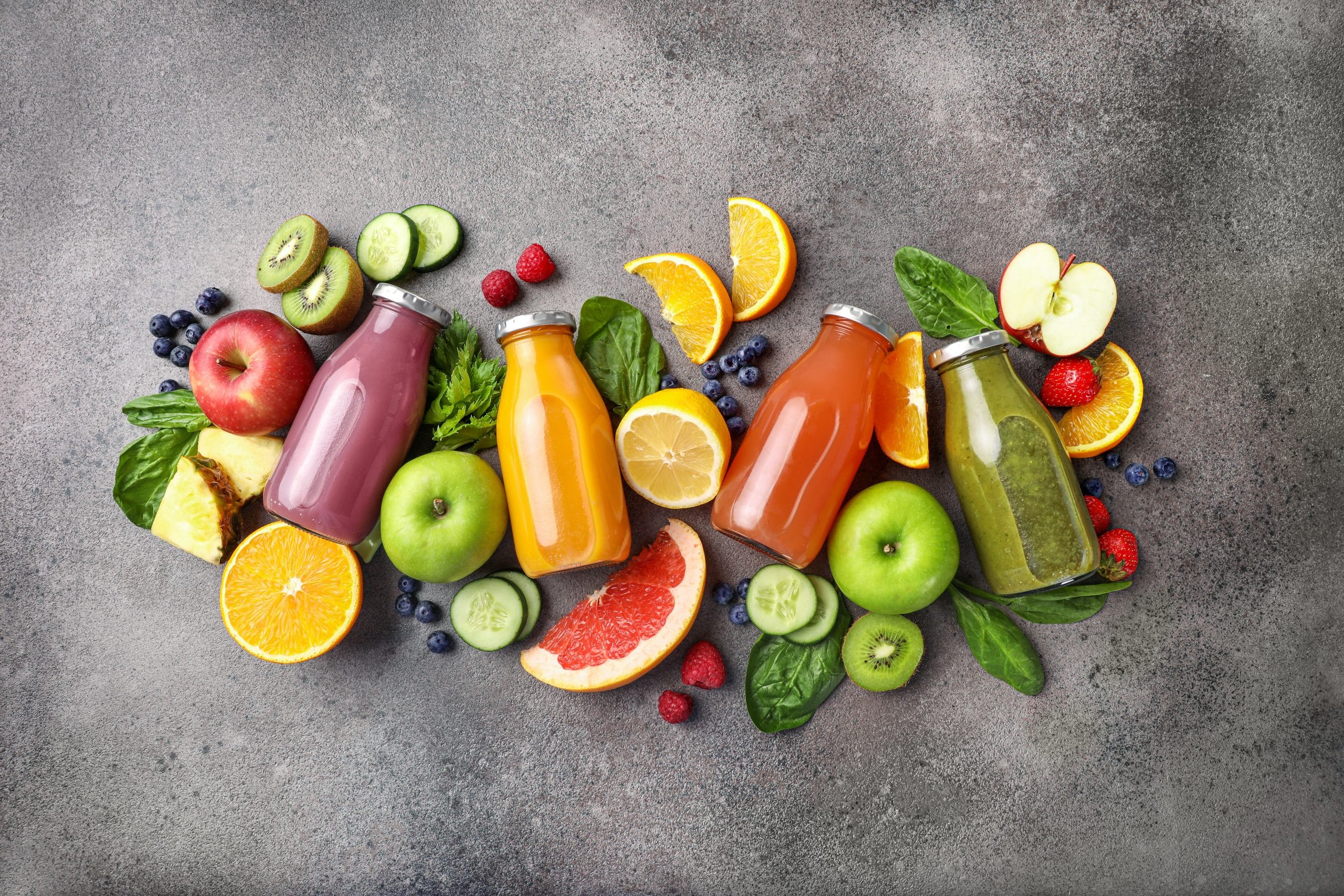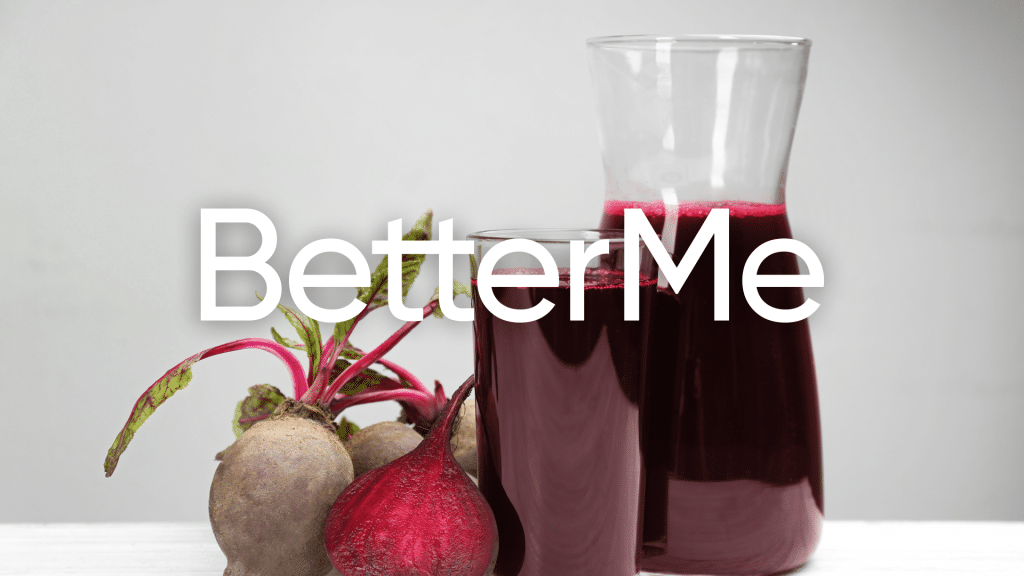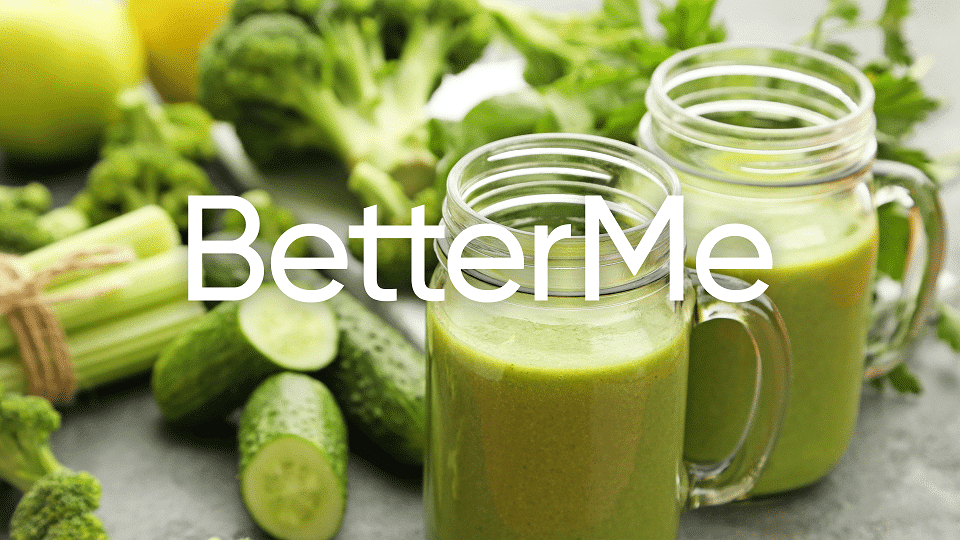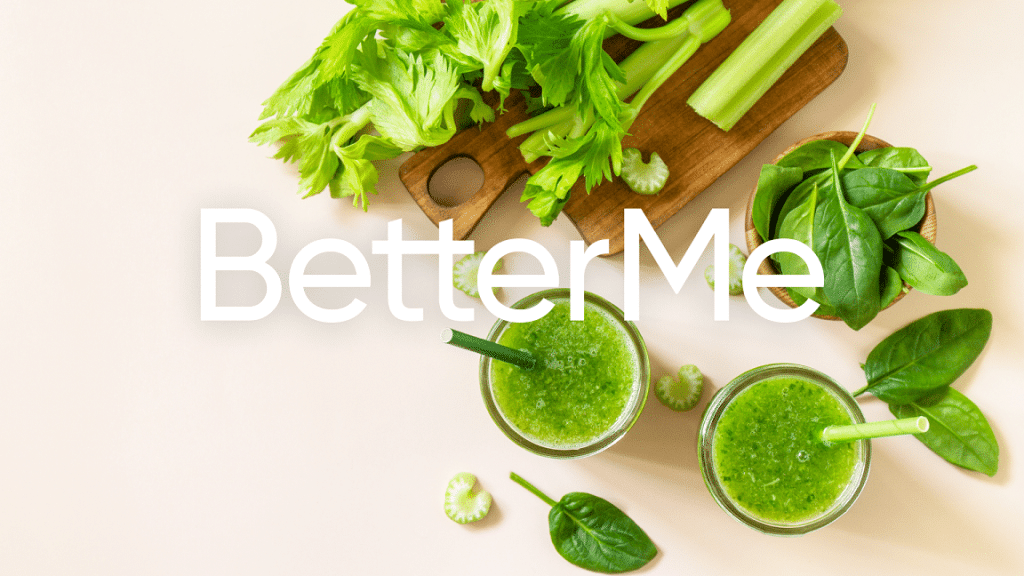Cold-pressed juice is a type of juice extracted using a hydraulic press, which applies high pressure to fruits and vegetables to extract the maximum amount of liquid without generating heat. This method is different from traditional centrifugal juicing, where a spinning blade generates heat and can cause oxidation, possibly reducing the nutritional content of the juice. As more and more people have sought healthier beverage options, this type of juice has emerged as a popular choice among health enthusiasts and casual consumers alike. In this blog post, we’ll take a comprehensive look at the benefits of cold-pressed juice, how it differs from conventional juices, and why it may just make you ditch your favorite box-brand beverage. We’ll also discuss potential drawbacks and offer tips on how to incorporate cold-pressed juice into your nutrient-dense diet in the most effective way.
What Are The Benefits Of Cold Pressed Juice?
Cold-pressed juice offers a wide range of nutritional benefits due to its unique extraction process, which is said to preserve the nutritional value of fruits and vegetables.
These juices are packed with essential nutrients, enzymes, and antioxidants, providing an enjoyable and efficient way to support overall health. They can also improve hydration, aid in natural detoxification and boost energy levels.
The health benefits of cold-pressed juice include:
- Nutrient Retention
- Better Flavor and Quality
- Longer Shelf Life
- Increased Hydration
- Natural Detoxification Support
- Weight Management
- Improved Energy Levels
Nutrient Retention
Cold pressed juice has a higher nutrient retention rate because it doesn’t expose the produce to heat or oxygen during the extraction process.
However, one study found no significant differences in bioactive compound content or antioxidant activity between cold-pressed and normal centrifugal juices (4). So any type of juice will have similar nutritional qualities.
A diet rich in nutrients is crucial for promoting optimal health, supporting the immune system, and preventing chronic diseases. Consuming cold pressed juice can be an efficient way to increase your daily intake of essential nutrients, helping you achieve better overall health (4).
Better Flavor And Quality
The cold pressing process produces juice with a more vibrant flavor and color, according to some. The absence of heat and oxidation is said to help maintain the natural taste and aroma of the fruits and vegetables, resulting in a fresher and more enjoyable drinking experience.
Read More: 10 Vegetable Juice Benefits That’ll Get You Juicing Right Away
Longer Shelf Life
When properly stored and preserved, cold pressed juice may have a longer shelf life as compared to some other types of freshly made juices.
The hydraulic press method used in cold pressing minimizes the exposure of the juice to heat and oxygen, which causes nutrient degradation and spoilage (1).
However, it’s important to note that cold pressed juices are still perishable and have a shorter shelf life than commercially processed juices, which often contain preservatives and undergo pasteurization.
To extend the shelf life of cold pressed juice, most manufacturers use a method called High-Pressure Processing (HPP) (9).
HPP subjects the bottled juice to high pressure, which inactivates harmful bacteria and pathogens without using heat. This process can extend the shelf life of cold pressed juice to around 30 days when refrigerated, compared to only a few days for unpreserved, fresh juice (9).
However, it is still essential to consume the juice within the recommended time frame and store it properly in the refrigerator to maintain its freshness and nutritional value.
Increased Hydration
Cold pressed juices are an excellent source of hydration as they contain a high percentage of water from the fruits and vegetables.
If you struggle to meet your daily water intake requirements, adding cold pressed juices to your diet can be a simple and delicious way to increase your hydration levels.
Staying hydrated is essential for maintaining proper body functions, including digestion, circulation, and temperature regulation (10).
Natural Detoxification
Cold pressed juices, especially those made from green leafy vegetables, may support the body’s natural detoxification process (7).
The natural detoxification benefit of cold pressed juice mainly lies in its ability to support the body’s innate detoxification process. While it’s true that the body has its own mechanisms for eliminating toxins, certain nutrients found in cold pressed juices can enhance these processes.
For instance, the antioxidants, vitamins, and minerals present in the juice can help protect the liver, kidneys, and other organs responsible for detoxification (7). By providing the necessary nutrients, cold pressed juice assists the body in functioning more efficiently, allowing it to cleanse itself more effectively and maintain optimal health.
Dropping pounds by the dozens without putting yourself through the wringer is everyone’s weight loss pipe dream. But what if we told you that the BetterMe app can make that happen? Keep yourself in prime shape with our fat-blasting workouts, delicious budget-sparing recipes, and body-transforming challenges with our app!
Weight Management
The weight management benefit of cold pressed juice stems from its ability to serve as a healthier alternative to other sugary beverages.
Although it has the natural sugars from the fruits and vegetables, cold pressed juice is made from fresh fruits and vegetables without any added sugar.
While it’s true that some cold pressed juices may not be necessarily low in calories, they offer a more nutrient-dense option that can have less of a negative impact on your weight management goals.
By replacing sugary drinks with cold pressed juice, you can enjoy a more wholesome and natural source of nutrients while avoiding the empty calories and unhealthy ingredients commonly found in other beverages. This can ultimately contribute to better weight management and overall health.
Improved Energy Levels
The high concentration of vitamins, minerals, and bioactive compounds in cold-pressed juice can help boost energy levels. These nutrients are easily absorbed by the body, and many are needed for energy metabolism and other processes.
Having consistent energy levels throughout the day is essential for productivity, focus, and overall well being. Replacing sugary drinks with nutrient-rich cold pressed juice can help keep your energy levels up so you can stay productive and feel your best.
Is It Good To Drink Cold Pressed Juice Daily?
It can be good to drink cold-pressed juice daily in moderation, as long as it is part of a balanced diet that includes whole fruits and vegetables, and you are mindful of the calorie and sugar content. Consider the following benefits of cold-pressed juice daily, and the possible drawbacks:
Benefits of drinking cold-pressed juice daily:
Increased Nutrient Intake
Cold pressed juices are rich in vitamins, minerals, and antioxidants, which are essential for maintaining good health (4). Drinking these juices daily can help you meet your daily nutrient requirements and support overall well-being.
Read More: Best Fruits To Juice For Health And Invigoration
Improved Hydration
Cold pressed juices have a high water content, which can contribute to your daily fluid intake and help maintain proper hydration levels.
Healthier Alternative To Processed Beverages
Replacing sugary drinks with cold pressed juice can reduce your consumption of added sugars and artificial ingredients, promoting better weight management and overall health (7).
Drawbacks of drinking cold-pressed juice daily:
Caloric Intake
While cold-pressed juices can be a healthier alternative to sugary beverages, they can still be relatively high in calories, especially if they contain a large amount of fruit.
Consuming too many calories from juice can lead to weight gain and negatively impact weight management goals (5).
Lack Of Fiber
The process of making cold-pressed juice leaves behind the fiber from the fruits and vegetables. A diet high in fiber is crucial for maintaining digestive health and preventing chronic diseases (2).
Cost
Cold-pressed juices can be expensive as compared to other types of juices or whole fruits and vegetables. Drinking them daily could lead to increased food expenses.
Potential For Overconsumption Of Certain Nutrients
Some cold pressed juices, particularly those made predominantly from fruits, can be high in sugar. Consuming too much sugar, even from natural sources, can lead to weight gain and other health issues (8).
Want to build an attention-grabbing bubble butt, blast away fat that’s stored in all the wrong places, spring-clean your diet, turn back the clock on your skin, skyrocket your self-confidence and shatter your insecurities? Check out the BetterMe app and set this plan in motion!
How Often Should You Drink Cold-Pressed Juice?
A general guideline for drinking cold-pressed juice is to consume it 2-3 times a week in moderation, as part of a balanced diet that includes protein, whole grains, healthy fats, and whole fruits and vegetables.
However, the optimal frequency for drinking cold-pressed juice depends on your individual nutritional needs, dietary preferences, and health goals. Here are some considerations to help you determine how often you should drink this beverage:
Moderation Is Key
As a general rule of thumb, it’s best to consume cold-pressed juice in moderation to avoid excessive calorie and sugar intake. Aim to have it a few times a week rather than daily.
Consider Your Health Goals
If you’re trying to lose weight or manage blood sugar levels, opt for cold-pressed juices made primarily from vegetables with a smaller proportion of fruits to reduce calorie and sugar content. Drink these juices as part of a balanced diet and exercise routine.
Focus On Variety
To ensure you’re getting a wide range of nutrients, rotate between different types of cold-pressed juices made from various fruits and vegetables. This can also help prevent overconsumption of certain nutrients.
Listen To Your Body
Pay attention to how your body reacts to cold-pressed juices. If you feel energized and notice improvements in your digestion or overall well-being, you may choose to consume them more frequently.
However, if you experience digestive discomfort or weight gain, consider reducing the frequency or adjusting the ingredients in your juices.
Should I Drink Cold-Pressed Juice In The Morning?
Yes, drinking cold-pressed juice in the morning can be a great way to start your day with a nutrient boost. This beverage provides natural sugars that can act as a quick source of energy. It also has a high water content which can contribute to your daily fluid intake.
However, you shouldn’t rely solely on cold-pressed juice for breakfast, as it lacks the fiber and protein necessary for a balanced meal.
To maximize the energy-boosting effects of cold-pressed juice in the morning, pair it with a balanced breakfast that includes protein, healthy fats, and complex carbohydrates.
This combination will help maintain steady energy levels throughout the day by providing a mix of fast-acting and slow-releasing energy sources.
What Is The Cold-Pressed Juice Myth?
The “cold-pressed juice myth” refers to the misconception that cold-pressed juices are a magical elixir capable of providing all the necessary nutrients for optimal health, detoxifying the body, and promoting weight loss without any negative effects.
While cold-pressed juices do offer several nutritional benefits, it’s essential to understand their limitations and consume them as part of a balanced diet.
Some common misconceptions associated with the cold-pressed juice myth include:
Complete Nutrition
Cold-pressed juices cannot replace whole fruits and vegetables in terms of fiber content and overall nutritional value. They also lack protein and healthy fat. Consuming only juice can lead to nutrient deficiencies and imbalances.
Detoxification
The idea that cold-pressed juices can “detox” the body is misleading, as our liver and kidneys are responsible for detoxification. While a nutrient-dense juice can support overall health, it does not specifically detoxify the body.
Weight Loss Miracle
Drinking cold-pressed juice alone will not lead to sustainable weight loss. A balanced diet and regular exercise are essential for healthy weight management.
Additionally, some cold-pressed juices can be high in sugar and calories, which may hinder weight loss efforts if consumed in excess.
No Negative Effects
Excessive consumption of cold-pressed juice can lead to an overconsumption of certain nutrients, elevated blood sugar levels, and weight gain, especially if the juice is high in sugar or lacks sufficient fiber.
Cold-Pressed Juice FAQ
Why Is Cold-Pressed Juice Better?
Cold-pressed juice is considered better because it is said to retain more nutrients, enzymes, and flavor compared to juices made using traditional centrifugal juicers.
However, studies show that this is not the case. Regular juices and cold-pressed juices are not significantly different.
How Much Cold-Pressed Juice Should I Drink A Day?
The ideal amount of cold-pressed juice to consume daily varies depending on individual needs and health goals.
As a general guideline, it’s best to drink cold-pressed juice in moderation, aiming for one serving (6 ounces) per day, as part of a balanced diet that includes whole fruits and vegetables.
How Often Should You Drink Cold-Pressed Juice?
You might drink cold-pressed juice 2-3 times a week in moderation, as part of a balanced diet that includes whole fruits and vegetables. Always consider your health goals and consult a healthcare professional if you have specific concerns or dietary restrictions.
What Are The Benefits Of Fresh Squeezed Juice?
The benefits of fresh-squeezed juice includes a high nutrient content due to minimal processing and a rich, vibrant flavor.
Cold-pressed juice cleanses can provide short-term benefits such as increased energy levels and a boost in nutrient intake. However, they should not be relied upon for long-term health or weight loss solutions.
Summary
Cold-pressed juices offer numerous nutritional benefits, including a high nutrient content and improved flavor compared to traditional juicing methods. However, it’s crucial to consume them in moderation as part of a balanced diet that includes whole fruits and vegetables.
Always consider your individual health goals and consult a healthcare professional for personalized advice on incorporating cold-pressed juices into your lifestyle.
DISCLAIMER:
This article is intended for general informational purposes only and does not serve to address individual circumstances. It is not a substitute for professional advice or help and should not be relied on for making any kind of decision-making. Any action taken as a direct or indirect result of the information in this article is entirely at your own risk and is your sole responsibility.
BetterMe, its content staff, and its medical advisors accept no responsibility for inaccuracies, errors, misstatements, inconsistencies, or omissions and specifically disclaim any liability, loss or risk, personal, professional or otherwise, which may be incurred as a consequence, directly or indirectly, of the use and/or application of any content.
You should always seek the advice of your physician or other qualified health provider with any questions you may have regarding a medical condition or your specific situation. Never disregard professional medical advice or delay seeking it because of BetterMe content. If you suspect or think you may have a medical emergency, call your doctor.
SOURCES:
- Canning of juices, fruit drinks, and water (2016, sciencedirect.com)
- Dietary fiber: Essential for a healthy diet (2022, mayoclinic.org)
- Digestive Enzymes and Digestive Enzyme Supplements (n.d., hopkinsmedicine.org)
- Effect of cold-pressed and normal centrifugal juicing on quality attributes of fresh juices: do cold-pressed juices harbor a superior nutritional quality and antioxidant capacity? (2019, nih.gov)
- Factors Affecting Weight & Health (2018, nih.gov)
- Food processing and nutrition (n.d., betterhealth.vic.gov.au)
- Health benefit of vegetable/fruit juice-based diet: Role of microbiome (2017, nih.gov)
- Sugar (2022, betterhealth.vic.gov.au)
- The efficacy and safety of high-pressure processing of food (2022, wiley.com)
- Water, Hydration and Health (2011, nih.gov)












